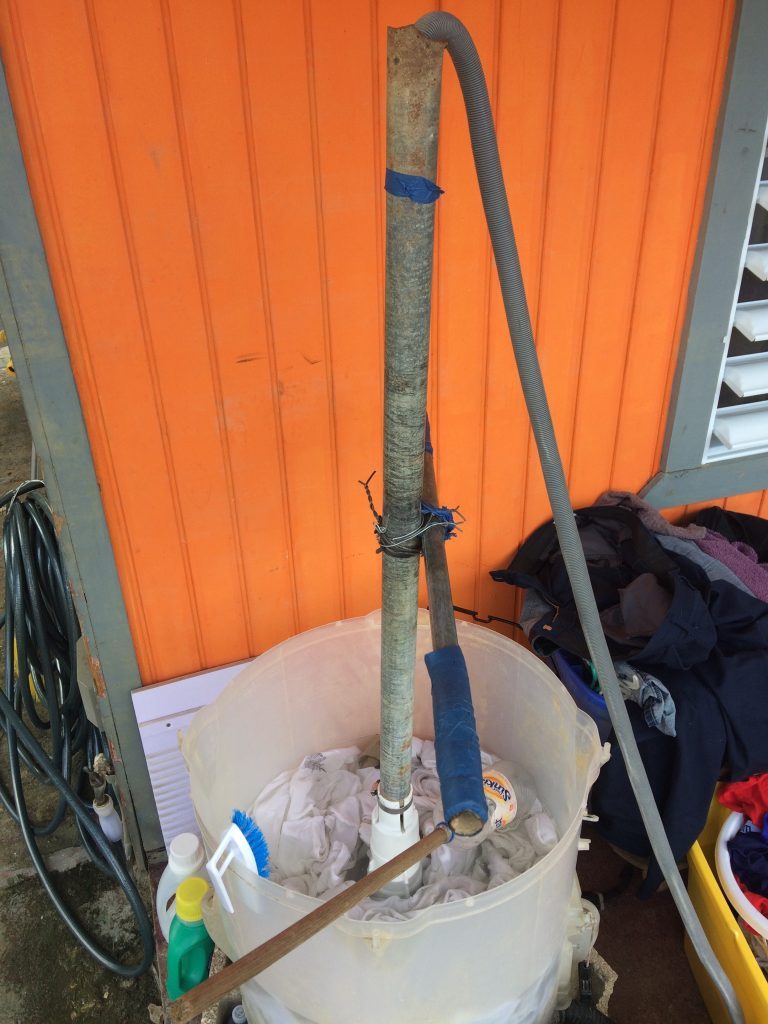When the lights go out after disasters: the disproportionate burden on women
Written by Dr Gemma Sou, Lecturer in International Disaster Management.
@gemmasou
After Hurricane Maria made landfall in Puerto Rico on September 20th 2017, the media kicked into frenzy mode and recounted the devastation brought by the grade 5 Hurricane. This was followed by images of the Red Cross giving out relief aid to Puerto Ricans, and Trump’s belated and highly curated visit, where he implied that impacts were not disastrous because only 16 people had lost their lives (though subsequent estimates are much higher). Now, just a few months later, and it seems Puerto Rico has fallen off the face of the earth. However, the impacts are still being felt by ‘ordinary’ Puerto Ricans, on an acute and daily basis. In fact, the recovery of disaster-affected families will be a protracted and arduous process that will largely take place in the absence of external assistance.
Three weeks after Maria made landfall I visited Puerto Rico to begin longitudinal research on household self-recovery in one urban neighbourhood. I’m following 19 families and tracing the evolution of their recovery during the first year after impacts. So far, I spoke to all of the families in October and December, and I’ll be visiting again in March and July. There are many things that this research has so far uncovered; however, I’m under strict orders to keep this blog to approximately 500 words. Therefore, I’d like to focus a little on how the lack of electricity is disproportionately burdening women.
The electricity, or “la luz” has been down since the initial impacts of Maria, and it is only in the last two weeks that power has been restored in the neighbourhood where I am working. Talking to families, it quickly became clear that electricity shapes people’s lives in many ways that I had not previously considered. For instance, people cannot refrigerate food and so they must make daily trips to shops if they want to eat fresh food – a role that typically falls to women as they are often in charge of domestic duties. There are many women who run home-based businesses making ice creams or cakes for example. However, they’re now unable to continue earning their own income, which can adversely affect their household bargaining power, according to previous disaster research.
And despite the power being out, there will always be laundry to clean. In the absence of washing machines, women are turning to hand washing clothes using homemade ‘contraptions’ (see photo), which not only “takes ages!” as one woman admitted, but is also “absolutely exhausting!” Many women have also had to ‘downgrade’ to a single gas stove when cooking for the household (see photo). As you can imagine, this significantly increases the amount of time women spend preparing food. And to make matters worse, many women now have to cook for twice the amount of mouths, because extended families are temporarily living together whilst houses are slowly being repaired.
For families that can afford to buy a gas-fuelled generator, it can power washing machines, TVs and radios for example. However, gas is expensive, and people complain of fumes affecting their breathing, as well as the unbearable noise produced by the generators. Again, this is disproportionately affecting women who spend longer hours at home. Singer Joseph Fonseca actually released a song inspired by the buzzing sound of generators in Puerto Rico.
Families consistently told me that they want some sense of “normality” back. And the many Christmas trees and decorations on display during my December visit were testimony to this (see photo). Hopefully the return of electricity will go some way towards restoring some sense of ‘normalcy’. However, it is likely to be many years before families have recovered.
Gemma Sou has secured funding from the University Public Engagement fund to write and create a graphic novel about her research. The story will focus on how a single Puerto Rican family is affected by and recovers from Hurricane Maria. It will be based on the ‘real life’ accounts from her interviewees. She will be working with a local illustrator.
Gemma Sou’s policy brief for her research in Puerto Rico can be read here.





0 Comments